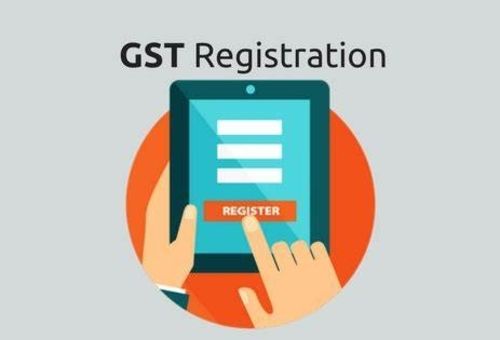How to Locate the most effective GST Registration Services in Singapore Quickly
How to Locate the most effective GST Registration Services in Singapore Quickly
Blog Article
From Beginning To End: The Ultimate Roadmap to GST Enrollment for Services Seeking Financial Stability
Browsing the complexities of Goods and Provider Tax Obligation (GST) registration is a crucial step for companies pursuing financial security. From recognizing the fundamental concepts of GST to following post-registration guidelines, the procedure can appear daunting in the beginning glance. Nevertheless, damaging down the roadmap right into manageable steps can enhance the enrollment journey for organizations wanting to improve their economic standing. Allow's check out the essential components that comprise this supreme roadmap and find exactly how each phase adds to laying a solid foundation for financial success.
Understanding GST Essentials
Exploring the basic principles of Product and Provider Tax (GST) is essential for acquiring a detailed understanding of its ramifications on companies and the economic situation. GST is a value-added tax levied on the majority of products and solutions for residential usage. It has actually changed numerous indirect taxes that existed in the pre-GST age, improving the tax obligation structure and boosting convenience of doing service in India. Under the GST system, both items and services are exhausted at a specific price, which is figured out based on their classification. Organizations are called for to sign up for GST if their annual turn over surpasses the threshold limit established by the government. Input Tax Obligation Credit Report (ITC) is a substantial function of GST, allowing companies to declare credit score for taxes paid on inputs, minimizing the overall tax worry. Understanding the fundamentals of GST is critical for organizations to adhere to tax obligation guidelines, manage their finances effectively, and add to the country's economic development by joining a transparent tax system.
Eligibility Requirements for Enrollment
To sign up for GST, businesses must satisfy certain eligibility requirements developed by the federal government. The main eligibility requirement is that any kind of company involved in the supply of products or services with a yearly accumulation turnover over the threshold limit established by the authorities have to sign up for GST. As of the present policies, the threshold limit for GST registration is an annual aggregate turnover of 40 lakhs for companies running within a state, other than for unique group states where the limit is 20 lakhs. Additionally, certain services are required to register for GST irrespective of their turn over, such as interstate vendors, informal taxed persons, and services reliant pay tax obligation under the reverse charge system. It is crucial for services to thoroughly analyze their turnover and transaction types to determine their GST registration obligations precisely. Failing to sign up for GST when eligible can lead to charges and lawful consequences, making it essential for companies to stick to the specified qualification criteria.
Papers Needed for Registration
Having fulfilled the eligibility criteria for GST enrollment, companies need to now ensure they have the requisite records in position to continue with the enrollment procedure efficiently. The papers needed for GST enrollment normally include evidence of organization constitution, such as collaboration deed, registration certificate, or unification certification for different sorts of services. In addition, businesses need to supply documents developing the primary location of service, such as a rental agreement or electrical power expense. Frying pan card of business, as well as the identity and address evidence of promoters/partners/directors, are necessary for confirmation purposes. Bank account statements, along with canceled cheques or a duplicate of the bank passbook, are required to confirm the monetary details supplied during registration. Companies should have digital trademarks all set for the licensed notary. Making sure all these files are organized and conveniently offered will certainly accelerate the GST registration process, making it possible for companies to adhere to tax regulations seamlessly.
Step-by-Step Registration Process
Beginning the GST registration procedure entails a Learn More collection of structured actions to make sure a smooth and compliant enrollment for organizations. The primary step is to visit the GST site and fill in the registration kind with exact details of the organization entity. Following this, the applicant gets a Temporary Recommendation Number (TRN) which is made use of to return to the application process if it's not completed in one go.
Following, all required papers as per the list provided by the GST portal demand to be posted. These records typically consist of proof of business registration, address and identification proofs of marketers, monetary statements, and organization entity's frying pan card.

Post-Registration Conformity Standards

Conclusion
To conclude, organizations looking for financial stability must understand the essentials of GST, fulfill qualification standards, collect required papers, comply with the detailed enrollment dig this procedure, and abide by post-registration Look At This standards - Best GST registration services in Singapore. By adhering to these steps, businesses can ensure conformity with tax obligation policies and maintain economic stability over time
Additionally, particular organizations are needed to register for GST irrespective of their turn over, such as interstate providers, laid-back taxed individuals, and organizations liable to pay tax under the reverse fee system.Having actually fulfilled the eligibility criteria for GST enrollment, businesses should currently guarantee they have the requisite papers in place to proceed with the registration procedure successfully. The files required for GST enrollment normally include evidence of service constitution, such as partnership action, enrollment certification, or unification certificate for different types of services. Furthermore, services require to supply papers developing the principal place of organization, such as a rental agreement or electricity bill.Beginning the GST registration procedure involves a series of structured actions to guarantee a compliant and seamless enrollment for organizations.
Report this page